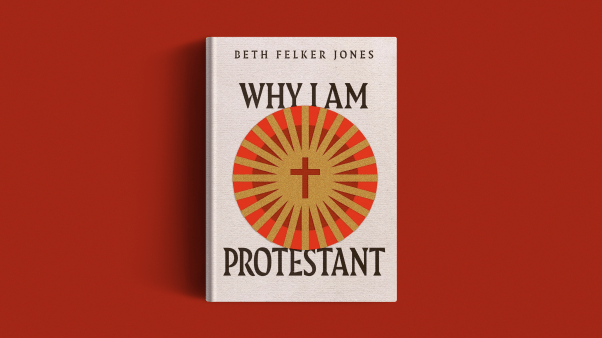According to a 2003 Harris poll, 96 percent of adults who self-identified as Christians believe Jesus was resurrected. More surprisingly, 50 percent of these Christians believe in the existence of ghosts, 27 percent believe in astrology as a means to make decisions, and 21 percent believe in reincarnation (that they were someone else in a past life).
With this in mind, Mary Roach’s latest book, Spook: Science Tackles the Afterlife (W. W. Norton, 2005) makes good reading not just for those looking for an interesting and sometimes humorous look at scientific attempts to prove the existence of the soul, but also for those of us who minister to people with souls, even if those people are not clear on what their soul is.
Roach, whose first book, Stiff, examined in equal detail what happens to the body after death, writes that she was raised in a Christian home, but the faith didn’t take “because science kept putting it on the spot.”
When she decided to examine beliefs about the soul, it was natural for her to turn to science.
“Flawed as it is, science remains the most solid god I’ve got,” writes Roach. “And so I decided to turn to it, to see what it had to say on the topic of life after death. I know what religion says, and it perplexes me. …
“Religion says your soul goes to heaven or possibly to a seven-tiered garden, or that your soul is reincarnated into a new body, or that you lie around in your coffin clothes until the Second Coming. Which means that for millions of people, religion will turn out to have been a bum steer as regards the hereafter. Science seemed the better bet.”
Whether or not Roach does know what religion says about the afterlife is open for discussion. However, you’ve got to admire her spunk.
Initially I expected the book to deal with current scientific findings about the afterlife. You quickly find, however, that Roach is equally interested in what scientists in the past have said about such things such as:
• The weight of the soul (three-fourths of an ounce, if you’re wondering)— “Which is, yes, twenty-one grams. Hollywood metricized its reference to the event for the simple reason that 21 Grams sounds better. Who’s going to see a move called Point Seven-Five Ounces?”
• Means of communicating with the deceased (turns out to be quite simple)—”Thousands of Americans and Europeans believe that tape recorders can capture the voices of people whose vocal cords long ago decomposed … they show up mysteriously when the tape is replayed. Heaven is supposed to have clouds and lots of white cloth and other excellent sound-absorbing materials. The heaven of these voices sounds like an airship hangar. They’re very odd.”)
• The strange phenomenon of ectoplasm (you’ll have to read about that yourself).
This combination of documented history along with interviews of current researchers makes for interesting and sometimes quite funny reading.
So what can those of us called to local church life learn from Spook?
As I read the accounts of people’s different understandings and expectations of life after death, I found myself wondering, What do the people who make up our church really believe? How many could articulate the rich, deep, and sometimes bewildering Christian understanding of the afterlife?
Roach’s research and interviews seem to indicate a steady interest (and not just by scientists) in what happens to the body and the soul after we die.
Certainly most of us in ministry preach sermons that address some level of this interest. But are we aware of just how prevalent and nuanced this interest is? Are our sermons and conversations informed not just by the deep truths of the Scriptures, but by the myriad stories our culture tells about the mystery of life after death?
It is these questions raised, along with well-told research, that makes Spook worth reading.
David Swanson Parkview Community Church Glen Ellyn, Illinois
Copyright © 2006 by the author or Christianity Today/Leadership Journal. Click here for reprint information onLeadership Journal.









